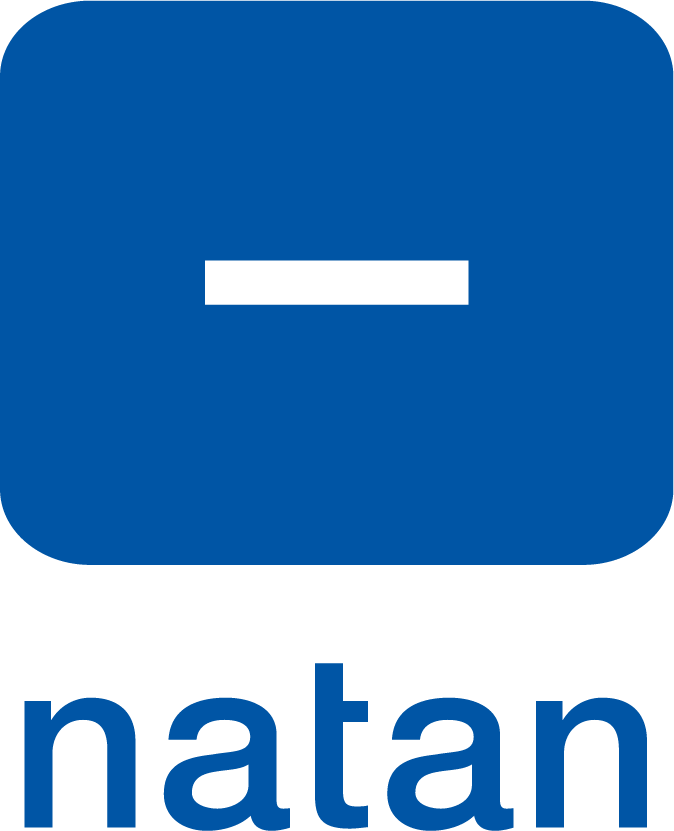
Natan Israel Grants for ROI Entrepreneurs
In the wake of the terror attack perpetrated by Hamas on October 7 and the outbreak of the Iron Swords War, organizations and leaders have pivoted to effectively meet the unique challenges emerging in Israel and across the Jewish world. Natan and ROI Community are no exception: after launching our seventh (non-consecutive) grant partnership, we adapted our grant process to better serve the needs of Israeli society at this critical moment.
These grantees work tirelessly to foster Shared Society and Women's Leadership, Rights, and Safety in Israel, and have shifted their activities to address the obstacles surfacing as a result of the October 7 attack and the ongoing war.
ROI and Natan are proud of the work these entrepreneurs are doing to build a more resilient civil society in Israel, now and for the future.
-

Briah Foundation* promotes women’s rights in healthcare through policy changes, research and grassroots innovation. Briah is focusing on maternal mental health with the goal of providing tools, information, and screening for women coping with perinatal depression or anxiety. Briah is also mapping out the medical needs (physical and mental) of October 7 survivors to better lobby for changes to the medical system so that it will more appropriately meet their needs.
-

Forum Dvorah* creates equal representation of women in public discourse and the media and in key decision-making positions in national security and foreign policy, based on the understanding that this will contribute to increasing Israel's national security. After October 7, in addition to the Forum Dvorah community self-organizing to lead various activities contributing to the national effort, the organization launched a campaign to raise the visibility of female IDF combat soldiers and emergency squads.
-

Tzhai* (Ray of Light) is changing Israeli society's perceptions regarding Ethiopian-Israeli women and creating an Israeli political arena that is diverse and inclusive in terms of gender as well as ethnicity. Tzhai offers a leadership training program for Ethiopian-Israeli women between the ages of 30–50 to prepare them for public and political service at the municipal and national levels. Tzhai is continuing to support its community members as they attempt to recover and heal from the trauma of the war.
-

Blend.Ar (short for “Blend Arabic,” but also known as “Blender”) promotes social cohesion by bridging linguistic and cultural gaps between Jews and Arabs while simultaneously creating employment opportunities. This grant will expand the Arab language and culture programs for the Haredi community to include cohorts of Haredi and Arab women. After the horrific events of October 7, Blend.Ar is helping Jews and Arabs in its programs meet each other in safe settings and rebuild mutual trust.
-

Movilot encourages diverse and high-quality employment for Haredi women as an economic driver and to bridge the gap between Israel’s insular and tight-knit ultra-orthodox community and the general population. Movilot is now formalizing an alumni network to catalyze the hundreds of women who have gone through its programs to better serve as mentors and catalysts for future cohorts of Haredi women professionals, particularly as they respond to the needs of Israeli society in the wake of the war.
-

One Million Lobby (1ML) advocates for a better social, economic, state-religion (SR), and cultural reality for Russian-speaking Jews and immigrants from the Former Soviet Union (FSU). Its SR program promotes equal religious rights and fair treatment in marriage, burial, and conversion for FSU Israelis by working with the Orthodox rabbinate, engaging media, and lobbying members of Knesset. 1ML’s operational motto, "Nothing About Us Without Us," demands that policy should be discussed and determined with the direct participation of the group it affects. As part of its activity, 1ML is advocating for the SR rights of Russian-speaking Israelis putting their lives on the line for Israel.
-

The Palestinian Internship Program (PIP) bridges the gap between the Jewish-Israeli and Palestinian/Arab communities, with a specific focus on the tech ecosystems. PIP strives to foster an environment of economic cooperation, facilitating innovation and skills sharing across borders. Through internship placements at Israeli tech companies, and mentorships between Palestinian entrepreneurs and Israeli tech leaders, PIP encourages cross-cultural relationships based on mutual respect and common goals. Following October 7, PIP has shifted to more internal programming and support for Palestinian citizens of Israel.
-

The Rifman Institute is dedicated to the holistic development and advancement of the Bedouin society in the Negev by cultivating a unified ecosystem that encompasses the national and municipal governments, businesses, and third-sector entities. In addition to strengthening Bedouin society in the Negev via vocational training and job support, better education for all genders, and new early childhood education programs, the Rifman Institute has been very active in supporting southern communities in the aftermath of October 7, including through providing much-needed supplies.

This grant is independent of the ROI Community partnership
-

Wave-ability* creates a more inclusive society for people with disabilities through the love of the beach and surfing. By fostering a mixed community where individuals of all abilities unite through shared activities and a shared passion for the sea and surfing, Wave-ability thrives to break down barriers and promote social integration.
